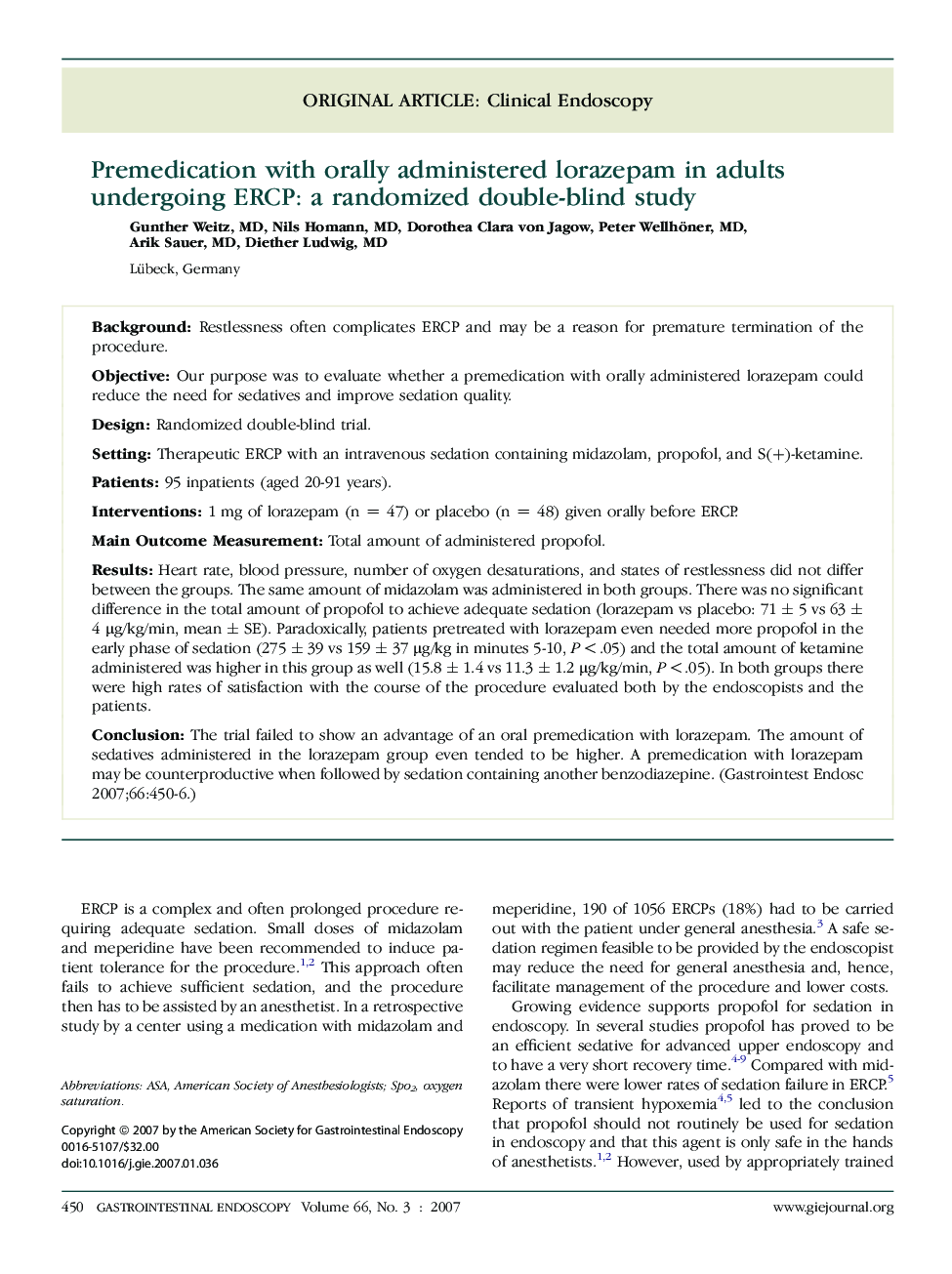| Article ID | Journal | Published Year | Pages | File Type |
|---|---|---|---|---|
| 3308886 | Gastrointestinal Endoscopy | 2007 | 7 Pages |
BackgroundRestlessness often complicates ERCP and may be a reason for premature termination of the procedure.ObjectiveOur purpose was to evaluate whether a premedication with orally administered lorazepam could reduce the need for sedatives and improve sedation quality.DesignRandomized double-blind trial.SettingTherapeutic ERCP with an intravenous sedation containing midazolam, propofol, and S(+)-ketamine.Patients95 inpatients (aged 20-91 years).Interventions1 mg of lorazepam (n = 47) or placebo (n = 48) given orally before ERCP.Main Outcome MeasurementTotal amount of administered propofol.ResultsHeart rate, blood pressure, number of oxygen desaturations, and states of restlessness did not differ between the groups. The same amount of midazolam was administered in both groups. There was no significant difference in the total amount of propofol to achieve adequate sedation (lorazepam vs placebo: 71 ± 5 vs 63 ± 4 μg/kg/min, mean ± SE). Paradoxically, patients pretreated with lorazepam even needed more propofol in the early phase of sedation (275 ± 39 vs 159 ± 37 μg/kg in minutes 5-10, P < .05) and the total amount of ketamine administered was higher in this group as well (15.8 ± 1.4 vs 11.3 ± 1.2 μg/kg/min, P < .05). In both groups there were high rates of satisfaction with the course of the procedure evaluated both by the endoscopists and the patients.ConclusionThe trial failed to show an advantage of an oral premedication with lorazepam. The amount of sedatives administered in the lorazepam group even tended to be higher. A premedication with lorazepam may be counterproductive when followed by sedation containing another benzodiazepine.
